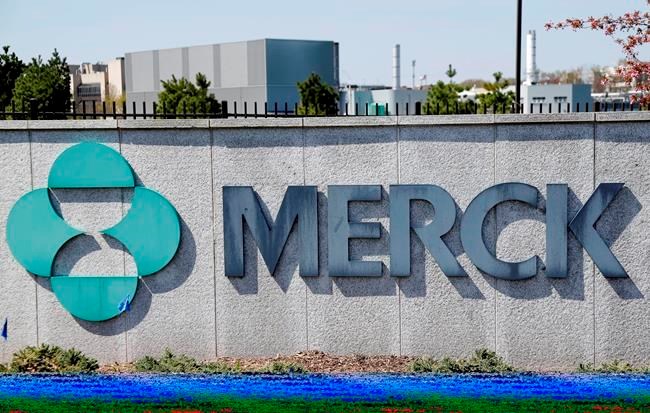FAIRLESS HILLS, Pa. — Surging sales of cancer medicines and reduced spending across the board helped Merck overcome a big hit from the coronavirus pandemic and pushed second quarter profits up by 12%.
The drugmaker blew past Wall Street projections and boosted its financial forecast for the year Friday even as it spends heavily on the development of two experimental vaccines and a possible treatment for COVID-19.
"Customer access to care is improving," said CEO Kenneth Frazier, adding that he is optimistic about vaccines and a treatment for COVID-19.
Unlike many rivals developing vaccines that will require two doses, Merck is aiming for one-dose vaccines.
The company bought Austrian vaccine maker Themis Biosciences this year to gain rights to its experimental COVID-19 vaccine. Human tests should begin this quarter. Human testing on a second type of vaccine, being developed with an international
Merck intends to try to get both approved, rather than picking the best one, because it expects multiple vaccines will be needed to protect different patient groups, research head Roger Perlmutter said Friday.
The company already has secured capacity to manufacture many millions of doses of the vaccine before the end of 2020, Frazier said. He said Merck is committed to “affordable and equitable access” to its treatments and vaccines.
In addition, Merck and partner Ridgeback Bio are developing a coronavirus treatment that was well tolerated by patients in early studies. In September, they plan to start two large trials that could lead to approval, with one for patients hospitalized with the virus and another for those being treated as outpatients.
“I am optimistic that we will be able to reduce the impact of this devastating pandemic,” Perlmutter said.
While it pursues treatments, COVID-19 is hurting Merck. The company said Friday that people are postponing visits to both doctors and veterinarians. Merck makes drugs for both people and animals.
Revenue fell 8%, to $10.87 billion, from $11.76 billion.
However, sales of immuno-oncology blockbuster Keytruda and other cancer drugs rose, partly due to approvals for new uses or patient groups.
Net income reached $3.0 billion, or $1.18 per share, up from $2.67 million, or $1.03 per share, a year earlier.
Adjusted for one-time items, income was $3.48 billion, or $1.37 per share.
Analysts surveyed by FactSet were expecting adjusted earnings of $1.06 per share and sales of $10.4 billion.
The Kenilworth, New Jersey, company said it now expects annual revenue of between $47.2 billion and $48.7 billion, and adjusted per-share earnings between $5.63 and $5.78. That’s up from its April forecast of between $46.1 billion and $48.1 billion in revenue and earnings per share of $5.17 to $5.37.
Sales of prescription medicines dropped 7%, to $9.68 billion. Nearly all of Merck's key drugs suffered sales declines, particularly those administered in hospitals and pediatric vaccines administered in doctors' offices. Sales of medicines for pets and livestock dipped 2%, to $1.1 billion, partly due to restaurant closures cutting demand for protein.
Keytruda continued its impressive growth toward potentially becoming the world’s top-selling medicine, with revenue soaring 29% in the quarter, to $3.39 billion. Revenue also jumped for Lynparza and Lenvima, two cancer drugs it sells with partner AstraZeneca.
“Despite the challenges, Merck is executing well,” with its new guidance now slightly above its 2020 financial forecast issued before the pandemic, Edward Jones analyst Ashtyn Evans wrote. She noted that sales were reduced by $1.6 billion, “as demand for doctor-administered drugs and vaccines declined and there were fewer new diagnoses.”
Merck & Co. shares rose 1% to $79.80 in midday trading Friday.
Linda A. Johnson, The Associated Press




